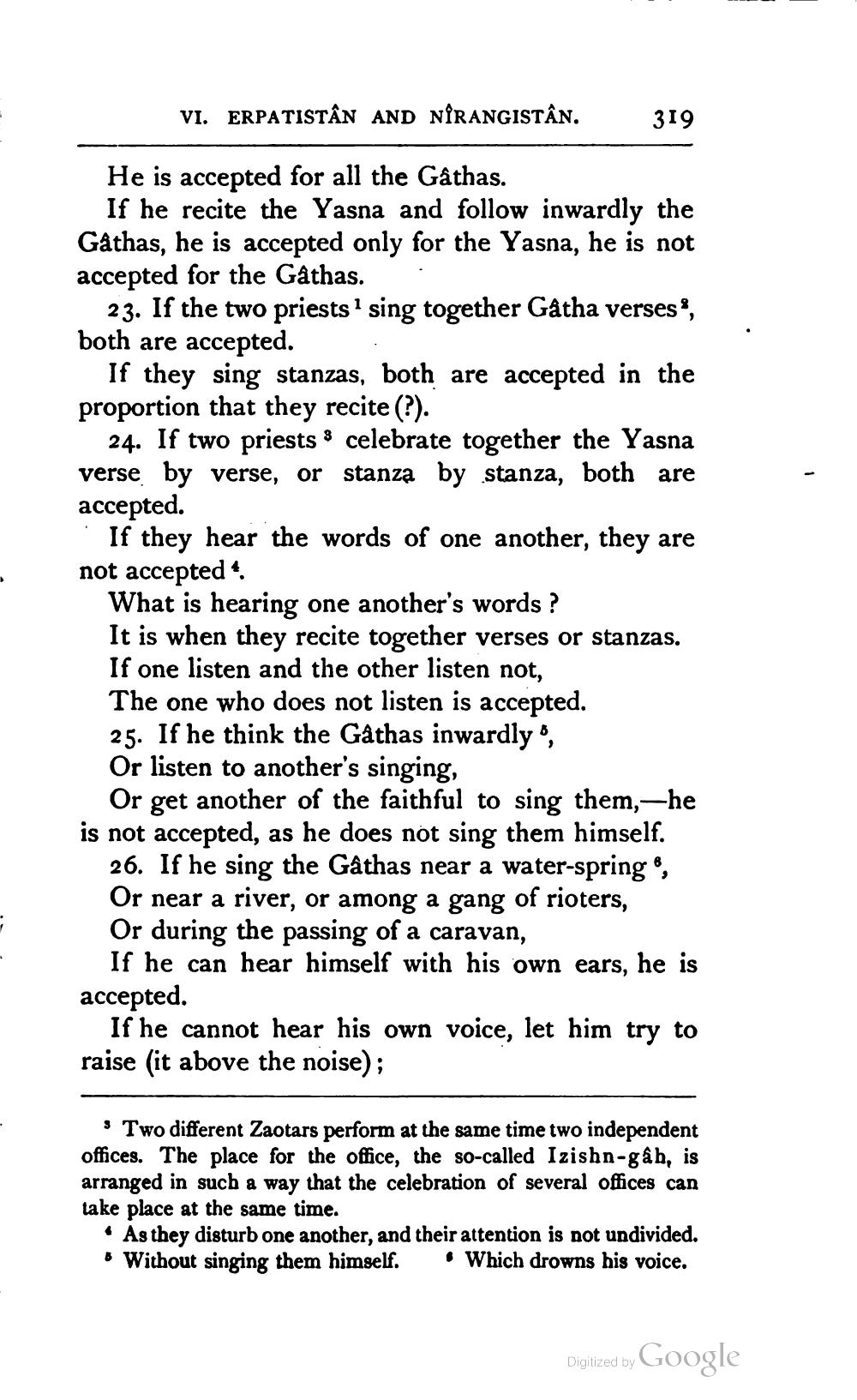________________
VI. ERPATISTÂN AND NİrangiSTÂN.
319
He is accepted for all the Gâthas.
If he recite the Yasna and follow inwardly the Gåthas, he is accepted only for the Yasna, he is not accepted for the Gathas.
23. If the two priests? sing together Gåtha verses, both are accepted.
If they sing stanzas, both are accepted in the proportion that they recite (?).
24. If two priests $ celebrate together the Yasna verse by verse, or stanza by stanza, both are accepted.
If they hear the words of one another, they are not accepted
What is hearing one another's words ? It is when they recite together verses or stanzas. If one listen and the other listen not, The one who does not listen is accepted. 25. If he think the Gåthas inwardly , Or listen to another's singing,
Or get another of the faithful to sing them,-he is not accepted, as he does not sing them himself.
26. If he sing the Gathas near a water-spring , Or near a river, or among a gang of rioters, Or during the passing of a caravan,
If he can hear himself with his own ears, he is accepted.
If he cannot hear his own voice, let him try to raise (it above the noise);
'Two different Zaotars perform at the same time two independent offices. The place for the office, the so-called Izishn-gâh, is arranged in such a way that the celebration of several offices can lake place at the same time.
• As they disturb one another, and their attention is not undivided. * Without singing them himself. Which drowns his voice.
Digitized by Google




